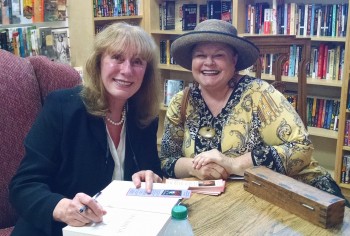Trend Watch: Is There a New Spy Game in Fiction?
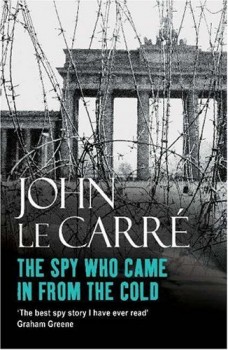 By Dawn Ius
By Dawn Ius
When the Soviet Union collapsed, there was a general feeling among publishers that with the inevitable wane of espionage, spy fiction must come to an end too.
Which was a shame, since the genre had a passionate following. “The Cold War was really the lens through which many people educated themselves about geopolitics,” says “Queen of Espionage” author Gayle Lynds, whose novels have been published in 20 countries.
“The New York Times pulled its regular spy novel column,” says Lynds. “Photojournalists who regularly roamed the world covering news stories couldn’t get a gig. People were exhausted by the Cold War and didn’t want to think about anything outside our borders. There was even a bill introduced into Congress to shut down the CIA—though it didn’t gain any traction.”
Many masters—including the great John le Carre, author of the groundbreaking The Spy Who Came in From the Cold—declared the genre dead.
“It was nearly impossible for a new spy author to be published in the 1990s. Joe Finder, Dan Silva, and I were exceptions,” Lynds says. “But then 9/11 happened—and the world opened up again.”
With 9/11 came a new threat, followed by wars, and a focus on the Middle East in life and fiction. But writers also started expanding their focus, exploring espionage and politics in Japan and China, and, of course, the successor to the “Evil Empire,” Russia. Writers also considered industrial, corporate, and cyber espionage, topics that perhaps, hit a little closer to home.
Lynds has been writing spy fiction full tilt. She’s the award-winning author of 10 espionage thrillers, including Assassins, a novel that moves from Washington, D.C.’s corridors of power to the dangerous back streets of Baghdad.
“In the real world, political and cyber antics multiplied and took new directions, revitalizing the genre,” says Barry Lancet, author of Tokyo Kill, the second book in his award-winning Jim Brodie series, which itself boasts a memorable spy sequence wedged into a larger story. “Jason Matthews’ comment when he accepted an award for Red Sparrow pointed to another reason for the genre’s rebirth: ‘Thank God for Putin.’ ”
A new generation of spy novelists has emerged who are keen to shape the genre into fresh forms that embrace the challenges of terrorism and modern geopolitics in entertaining ways.
“There is more variety in espionage fiction today,” Lancet says. “In the early days there were, roughly speaking, the over-the-top characters like Bourne and Bond, or more reflective spies like le Carre’s George Smiley. Today the genre has expanded to include great numbers of professional assassins and spies working in historical settings. And there are some very talented writers taking the psychological spy novel to new countries and trouble spots.”
In Terry Hayes’s breathtaking I Am Pilgrim, for instance, the central conflict takes place mostly in the Middle East. Last August, Mai Jia—who is often called China’s le Carre—released In the Dark, the follow-up to his counterespionage novel Decoded. Lancet’s Tokyo Kill provides further proof that there is a growing interest in authors setting their tales of intrigue in Asia, particularly those that go beyond geopolitics.
The espionage in Tokyo Kill, for instance, is in-your-face real-life—literally. Lancet says some of the story is based on an actual encounter he had in Tokyo when forced to share a table with a very aggressive spy. “The experience was fascinating and sobering. I held my own, but it’s not an episode I would willingly choose to repeat.”
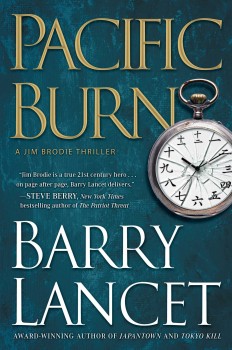 At least not in real life. His Chinese spy Zhou was so popular with readers, the character has hijacked the unnamed fourth book in the Brodie series. His third book, Pacific Burning, hits bookstores this month.
At least not in real life. His Chinese spy Zhou was so popular with readers, the character has hijacked the unnamed fourth book in the Brodie series. His third book, Pacific Burning, hits bookstores this month.
Authors who’ve built a following are thriving. The persistent challenge is drawing new readers to spy novels.
“Commercially, the problem with espionage fiction lately has been that while there have been a lot of successful authors—Daniel Silva, Olen Steinhauser, Alex Berenson—their success hasn’t re-invigorated the market for espionage fiction in general,” says Keith Kahla, executive editor at St. Martin’s Press. “It’s become a very author-driven market rather than a topic-driven market.”
In fact, despite a push toward exploration of new territories and threats, Kahla hasn’t witnessed a great hunger for, as an example, business or corporate spy fiction.
“Espionage as a sub-genre doesn’t have the same identifiable and loyal readership as, say, cat mysteries,” he says. “Now, if David Baldacci, or John Grisham, or J. K. Rowling writes one, it will be very successful—but the readers there aren’t coming for the topic.”
So, what are they coming for?
“Spies change the course of wars, shift the balance of power, change the world—all behind a deep secrecy,” Kahla says. “It’s about those events, the mechanics behind espionage, and the people who execute those plans, real or imagined; flawed or superhuman.”
“Good espionage writing can illuminate so many different sides of whatever is placed under the microscope, whether it’s a person, an action, or a moral issue,” Lancet adds. “Black and white are mere boundaries.”
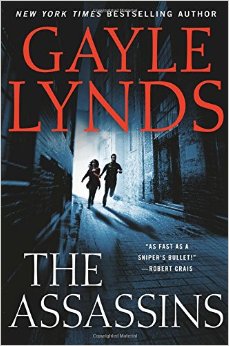 Lynds points out that even though spy fiction is “clinically declared dead every five or so years,” it maintains a steady pulse. “People are hungry to learn about the world.”
Lynds points out that even though spy fiction is “clinically declared dead every five or so years,” it maintains a steady pulse. “People are hungry to learn about the world.”
Especially as that world—and the tools within it—continue to evolve. Along with new enemies and fresh land to explore, modern spies learn to grapple with advanced technology that can elevate conflict to a much savvier or crueler level.
Lynds says there seems to be a trend toward more one-on-one espionage—killers versus killers, for example—which she notes is really “a reflection of the violence in our society.”
Matthew FitzSimmons’ December 2015 debut, The Short Drop, an assassin-inspired espionage tale climbing to the top of the Amazon charts, solidifies this.
“If I see a trend in espionage fiction—and I think it might be a stretch to claim this as a trend—it’s a more complicated vision of the spy and the world in which they operate,” Kahla says. “And, almost contradictory, it’s in historical espionage novels—settings like World War II, the great Cold War, etc.—where the forces at play are larger and more geopolitical.”
Tough slugging for new authors of the genre, perhaps. But there is hope.
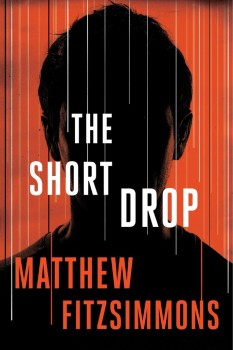 Next month, debut author Sonja Store will publish Desert Dark, a Young Adult espionage thriller about a 16-year-old girl who learns that the elite, government-funded boarding school she attends is actually a covert CIA program that trains high-achieving students for Black Ops.
Next month, debut author Sonja Store will publish Desert Dark, a Young Adult espionage thriller about a 16-year-old girl who learns that the elite, government-funded boarding school she attends is actually a covert CIA program that trains high-achieving students for Black Ops.
That’s one trend Lynds really hopes takes off. Not only does the book introduce the genre to a younger generation of readers, Store joins Lynds as one of only a handful of female authors writing spy fiction.
“Many men tell me I’m the only female author on their bookshelf,” she says. “There is an assumption that women can’t write espionage as good as the boys.”
Lynds’s success—and impressive credentials including a rich knowledge of the genre’s history and top level clearance at the CIA—should prove that gender doesn’t matter. But even today, with some of Lynds’ books, including her debut, Masquerade, making “best novel” lists and winning awards, spy fiction remains a male-dominated genre. A conundrum that even baffles Kahla, Lynds’s long-time editor.
“I could probably make up an answer that sounds all reasonable and logical—such as a predominantly older male audience that doesn’t read women writers—but frankly, that rings a little hollow,” he says. “It remains true that there are not many women who write espionage fiction, and I don’t know why.”
Combining the intrigue and complexity of the classic spy novel with contemporary themes will remain a challenge for male and female, new and seasoned authors, but fans of spy fiction can take heart—the spies haven’t been left out in the cold, and if the current trend holds, there is still plenty of intrigue to explore.
- On the Cover: Alisa Lynn Valdés - March 31, 2023
- On the Cover: Melissa Cassera - March 31, 2023
- Behind the Scenes: From Book to Netflix - March 31, 2023

